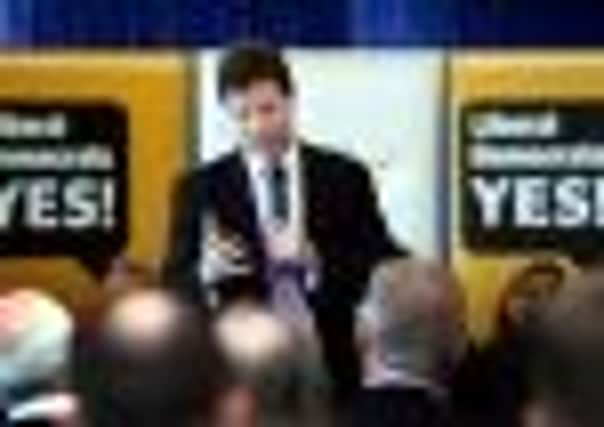Yorkshire MPs ‘would face AV reckoning’


Only 10 Yorkshire MPs won 50 per cent of votes in their constituency at the last election – the requirement to guarantee a win under the alternative vote system – while three were elected with as little as 35 per cent or less, according to new analysis by the Yorkshire Post.
Opinion polls suggest voters are likely to vote No to introducing the alternative vote – where candidates are ranked in order of preference – in today’s referendum and decide to stick with the current first past the post voting system. An ICM poll for today’s Guardian suggests 68 per cent of those certain to vote will say No.
Advertisement
Hide AdAdvertisement
Hide AdBut if AV were introduced, candidates would need to seek support from 50 per cent of voters to win – meaning most of the region’s MPs would have had to scoop up second, third or fourth preference votes from other candidates to win their seat.
Supporters of AV claim the current system is unfair because two thirds of MPs won their seats last year with fewer than half the voters in their constituency actually choosing them.
Last year Austin Mitchell won Grimsby for Labour with just 32.7 per cent of votes, while Liberal Democrat David Ward won Bradford East with 33.7 per cent and Simon Reevell came first in Dewsbury with just 35 per cent of votes.
At the other end of the scale, Dan Jarvis won Barnsley Central in a by-election earlier this year with 60.8 per cent of votes, and William Hague would have few worries in Richmond, where he won the seat with 62.8 per cent of votes last year.
Advertisement
Hide AdAdvertisement
Hide AdIntriguingly, Liberal Democrat leader and Deputy Prime Minister Nick Clegg, who demanded the referendum in order to join the coalition Government, won his seat with 53.4 per cent of votes, so AV would have had no impact on the outcome. Labour leader Ed Miliband would need to win some second preferences from other candidates, having been elected with 47.3 per cent of votes in Doncaster North.
The referendum comes at the end of a fractious campaign, with Cabinet tensions spilling out into the open amid allegations that both campaigns have misled voters.